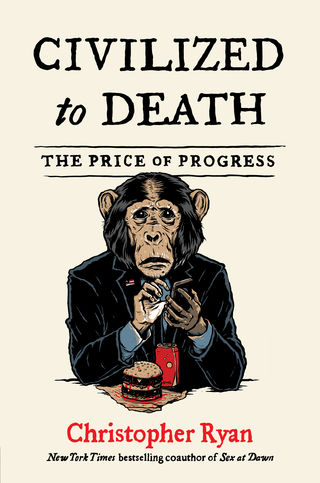
Freudian Psychology
Civilized To Death
A new book reconsiders the cost of our lifestyles.
Posted October 2, 2019 Reviewed by Devon Frye

As Freud entered the late stages of his career, he became much more interested in the cultural history and repercussions of the theory of mind he had spent a lifetime developing. Perhaps the most famous work of this period is Civilization and Its Discontents (1929), where he examines the tensions between the individual and their society.
According to his earlier work, we are dominated by twin drives towards sex and aggression while trying to modulate those animalistic desires into something that is socially acceptable. Civilization, then, is that which we developed to keep our more anti-social desires (to steal, murder, and so forth) in check to live at relative peace with one another. The end result is that which we see around us, but that only comes about by giving up the immediate satisfaction of our desires to live in an uneasy harmony with each other.
Freud is far from the first thinker to ascribe this pacifying role to civilization; Thomas Hobbes famously called life before the modern era "solitary, poor, nasty, brutish, and short." Christopher Ryan challenges this dark view of pre-modern humanity in his Civilized to Death: The Price of Progress.
Ryan labels the Hobbesian narrative of our development the Narrative of Perpetual Progress. Contrary to that account of our beginnings, he contends that pre-modern humanity was characterized by egalitarianism, mobility, and gratitude. What we think of as the advances of our society (e.g., the widening acceptance of LGBTQ people) is in most cases undoing the compromises made by civilization in order to return to the more accepting spirit of our ancestors.
In an era when it seems like many of us are increasingly unhappy, it's worth taking a look around and asking ourselves whether this was all worth it. Ryan's book is a polemic, to be sure, and admits of little nuance; he too quickly glosses over some of the darker aspects of pre-modern civilization such as the high infant mortality rate and maternal death. He also mixes citations from respected academics next to less-trustworthy authors such as Jared Diamond, which has the effect of weakening some of his arguments.
Calling into question the basic foundations of the world as we know it is a tall endeavor, and one's mind naturally goes to the question of what we are supposed to do now given all that Ryan has claimed. His vision for a path forward is relatively thin: "What if we strategically bring hunter-gatherer thinking into our modern lives by, for example, replacing top-down corporate structures with peer progressive networks and horizontally organized collectives and building an infrastructure of nonpolluting locally generated energy?" That is a start to be sure, but if we are in as deep of trouble as he seems to think, it hardly seems like enough.
It is increasingly clear to many of us that the way we have been living is no longer sustainable, at least as long as we want the earth to outlive us. While it has its shortcomings, Civilized to Death is an important guide in this conversation.

